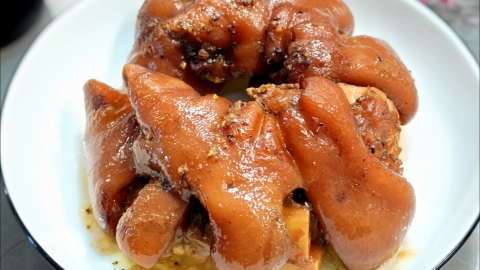Can patients with rectal cancer eat pig's trotters?
In general, patients with colorectal cancer can eat pig's trotters, but it is not recommended to consume them excessively. The detailed analysis is as follows:

During treatment and recovery, colorectal cancer patients need high-quality nutrition to support immune function and tissue repair. Pig's trotters are rich in collagen, protein, and minerals, which can provide energy for the body and aid in repairing damaged cells. Additionally, their fat content helps supplement calories and improve common issues during treatment such as weight loss and fatigue. Moderate consumption can positively support recovery.
However, portion control is essential—small amounts should be consumed each time to avoid increasing digestive burden. Cooking methods should primarily include clear stewing or braising, with surface fat removed. Avoid deep-frying, red-cooking, or other heavy-flavor preparations, and minimize spicy or irritating seasonings. Patients experiencing indigestion, bloating, or diarrhea should temporarily stop eating pig's trotters. Ensure the pig's trotters are thoroughly tenderized before consumption to facilitate chewing and digestion. They should also be consumed together with fresh vegetables and fruits to maintain a balanced diet and prevent nutritional imbalances from overly monotonous eating habits.





